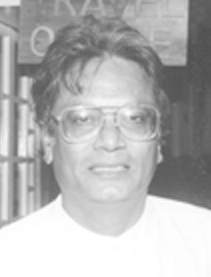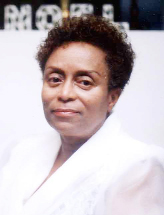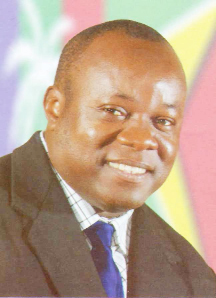The Vincentian people’s rejection of a new constitution at last month’s referendum is being heralded as a “wake-up call” to suitors of extensive executive power in the region.

While speculation is still rife about President Bharrat Jagdeo making a bid for a third term as head of state, the results of the St Vincent referendum have occasioned cautious optimism, as far as it is seen as a signal that people are prepared to rein in their governments.
St Vincent & the Grenadines Prime Minister Dr Ralph Gonsalves and the ruling Unity Labour Party (ULP) spearheaded the constitutional referendum to replace the territory’s 1979 independence constitution, but failed to secure the needed two-thirds majority of votes. According to the results of voting, 43.13% voted in favour of the new constitution, which would have abolished the monarchy and, according to the government, deepen democracy and reduce prime ministerial power in doing so — assertions challenged by the opposition NDP.
Granted, the referendum did not address a term-limit, which is not a feature that constrains Prime Minister Gonsalves, who made local politicians uncomfortable when he questioned the restrictions on terms of office of Caricom Heads of Government earlier in the year. “Let the people decide!” he was quoted as saying during the Caricom Heads of Government summit here, “There is already a shortage of quality leadership. Why impose artificial limits?” Apart from ignoring the question of a term-limit, the proposed constitution also did not broach the creation of an executive presidency — a proposal that Gonsalves rejected as recent as last month, explaining that it would make the office holder more powerful than the current situation in his country.
Noting the St Vincent opposition NDP’s warning about the enlargement of prime ministerial

powers, WPA Co-leader Dr Rupert Roopnaraine says the results clearly show that the Vincentians “quite wisely” refused to consent to the “enlargement of executive power” in any form. He added that Guyana continues to be strangled by excessive centralisation of executive power in the hands of an executive president, which he sourced to the fraudulent 1978 referendum. “Even the word [referendum], we have developed an allergy to, since in our case, it served to clear the way for an executive presidency and to my mind, the fraudulent referendum, we are still living with it and to that extent we are sympathetic with any population in the Caribbean that rejects the idea of an enlargement of executive power,” he explains.
Roopnaraine emphasises the lessons of Guyana’s history, noting that a Georgetown-based template for a new draft constitution in Trinidad has prompted concern and in particular, the possible proposal of an executive presidency. “It seems [Trinidad] Prime Minister Patrick Manning harbours the intention to move in this direction, which is ringing alarm bells,” he says, adding, “We have gone furthest along this route, since we have the most powerful executive head of government and head of state in the Caribbean, constitutionally.” According to him, this situation has been the catalyst for the calls to get rid of the executive presidency and revert to a ceremonial head of state with a prime minister that would be answerable to parliament.

AFC MP Sheila Holder, who notes that the defeat in St Vincent was not by a large margin, expected a larger rejection than the 55.64% of the electorate that voted ‘no.’ She, nevertheless, credits the result to an “enlightened electorate” and its refusal to be swayed by “emotionalism.” “The people are not about to give him a blank cheque,” she says, adding that it is an “excellent wake-up” call for him and people around the region. “It shows that you may be popular but people are maturing to the extent that they will say to you, ‘we want to exercise the power of the ballot to contain you and rein you in,’” Holder adds.
Although a government is elected, reminds PNCR MP Aubrey Norton, its ideas are not always in consonance with the electorate. He argues that the St Vincent referendum is an example of this fact, adding that elections are only one aspect of democracy. According to him, the lesson to be drawn from the referendum results is that governments must continually find ways and means to consult with the people, especially given the changes that occur between polls. “You need other means to assess the pulse of the people,” he insists.
Norton notes that while people might have supported the government at the time of elections, several laws since enacted might not have received the same support. He points to casino gambling legislation, which drew widespread protests from several sections of the society, and, in particular, vocal opposition from the religious community. “A lot of PPP supporters would have been disappointed with it,” he observes.
Meanwhile, Holder is cautious about what-if any-direct implications the St Vincent referendum could hold for the local political landscape. “Our situation is a little different,” she says, noting that the country remains racially divided, while also drawing attention to the absence of a communication system that could ensure that people are as informed as they need be in the event of a referendum.
Roopnaraine reiterates that referenda are a safeguard to protect certain rights of the people, but he cautions that they could also prove “extremely divisive” if used to revisit the issue of presidential term limits, which was believed to have been settled during the constitution reform process, when the parties voted for a two-term limit. He further points out that referendum is often a poll on the government, noting that Gonsalves ended up facing questions about himself and his performance — an outcome that Roopnaraine sees as a likely scenario here.
Although third term ‘feelers’ have been put out recently, President Jagdeo has publicly denied interest in a third term, saying people should serve and move on. His party, the ruling PPP, has also denounced moves to mobilise support for the call, which is at odds with the party’s support for term limits.
President Jagdeo most recently repeated his position during an interview with BBC’s Hardtalk, where he was asked by Zeinab Badawi about changing the constitution for another run for office in 2011. President Jagdeo jokingly said no, adding that while he wasn’t sure about his life after office, he would probably get a farm and sleep for a month.
